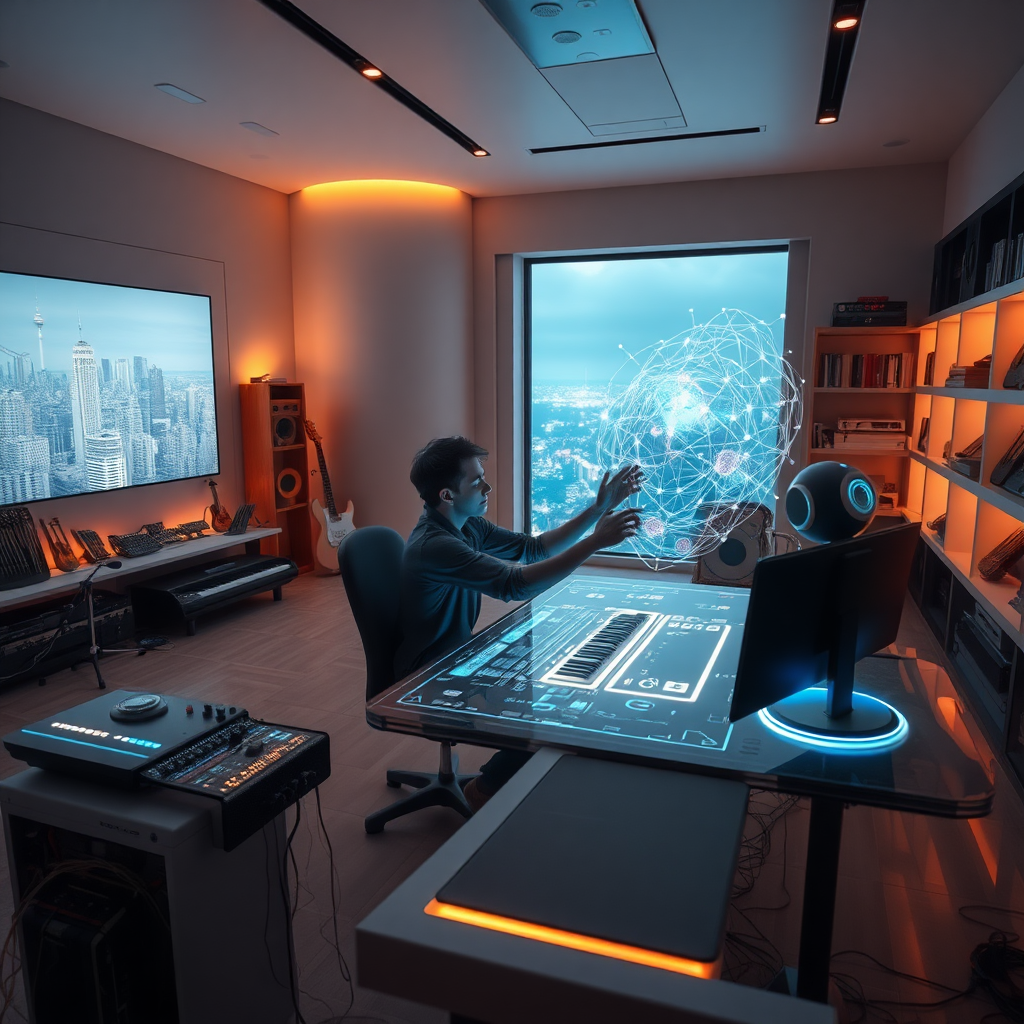- Published on
Unlock Your Musical Genius
- Authors

- Name
- darren
- @darrenli6
Unlock Your Musical Genius: How AI is Transforming Amateur Musicians into Professional Composers
In a world where technology continuously pushes creative boundaries, a revolutionary tool changes the game for musicians at every level. The AI Music Assistant isn't just another digital instrument—it's becoming the secret weapon of both seasoned professionals and aspiring artists alike.
Picture this: you're sitting at your desk, a melody dancing in your head, but the path to turning it into a fully realized composition seems overwhelming. This is where AI-powered innovation steps in, acting as your personal musical companion. It's not about replacing your creativity—it's about amplifying your natural talents and helping you navigate the complex world of musical composition.
What makes this technology truly remarkable is its ability to understand and enhance your unique musical voice. Unlike traditional composition tools, the creative AI system works as an intelligent collaborator, helping you explore possibilities you might never have considered. It's like having a seasoned producer sitting beside you, offering suggestions while respecting your artistic vision.
The real magic happens in the way it bridges the gap between musical expertise levels. Whether you're a bedroom producer experimenting with your first track or a professional composer working on your next masterpiece, the system adapts to your needs. It understands music theory deeply enough to suggest complex harmonic progressions yet remains accessible enough for beginners to grasp and implement its suggestions.
Perhaps most impressively, this technology excels at helping artists discover their unique sound. Through its sophisticated pattern recognition, it can identify elements that make your style distinct and help you develop them further. This isn't about conforming to preset templates but nurturing your musical identity.
The system's approach to creative collaboration sets it apart from conventional music software. Instead of simply providing a library of loops or presets, it engages with your creative process on a fundamental level. It can suggest complementary elements that enhance your initial ideas while maintaining the emotional core of your composition.
The technology offers unprecedented precision in stylistic guidance for composers working in specific genres. Whether you're crafting an emotional film score or producing an upbeat pop track, the AI assistant understands the nuances that make each genre unique. It can suggest appropriate scales, rhythmic patterns, and harmonic progressions that align perfectly with your chosen style.
The impact on workflow efficiency can't be overstated. Tasks that once took hours of experimentation can now be accomplished in minutes, leaving more time for the creative aspects of music-making that genuinely require a human touch. This isn't about cutting corners—it's about optimizing the technical aspects of composition so you can focus on the emotional and artistic elements that make your music unique.
What's particularly exciting is how this technology is democratizing musical creation. Aspiring artists who might have been intimidated by the complexities of composition can now confidently explore their ideas, guided by AI that understands music theory and creative expression. It's opening doors that previously seemed locked to all but the most technically trained musicians.
As we look to the future, the potential seems limitless. Technology continues to evolve, learning from each interaction and becoming even more adept at understanding and enhancing human creativity. For musicians at every level, this isn't just a tool—it's a gateway to unlocking their full artistic potential.
The question isn't whether to embrace this AI-powered revolution in music creation but rather how best to integrate it into your creative process. In a world where the barriers between imagination and realization constantly diminish, this technology is a testament to how AI can enhance rather than replace human creativity.

